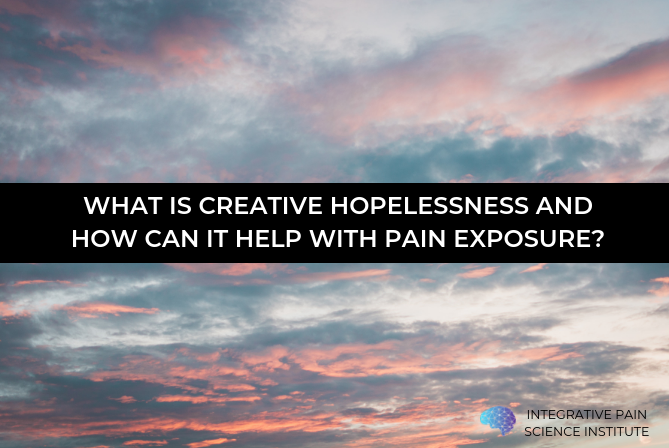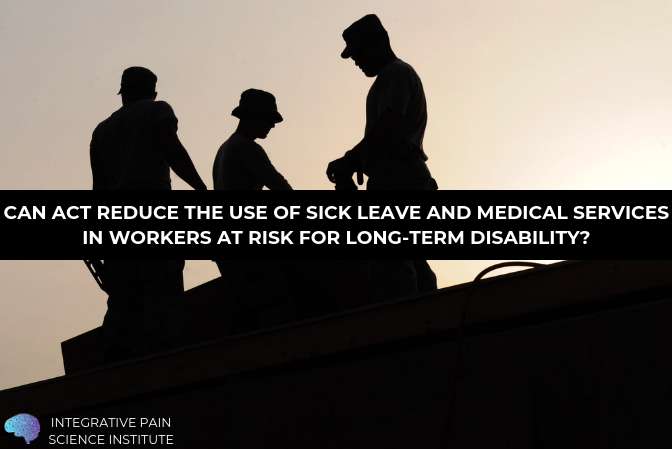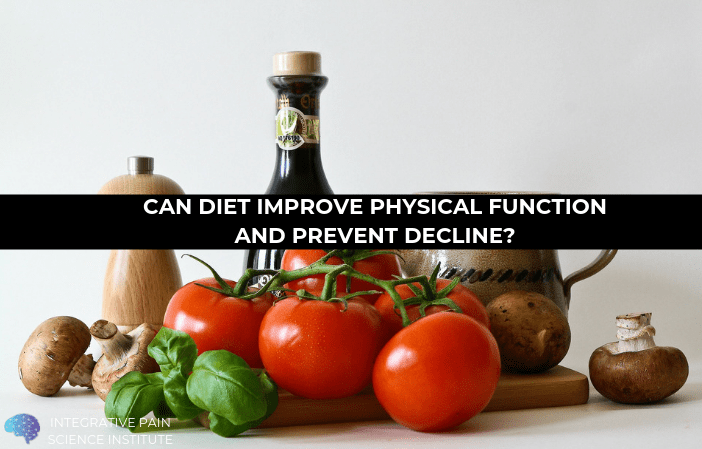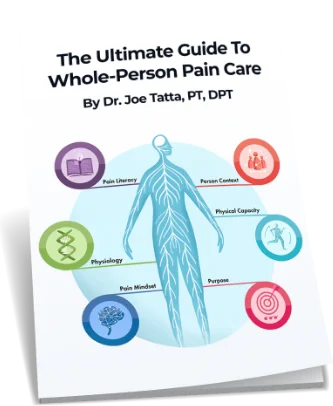What is Creative Hopelessness and How Can it Help with Pain Exposure?

Avoiding pain is one of the most natural human instincts. We all do it. We numb it with alcohol, drugs, we restrict our movement or our activities, and we withdraw. Pain is tough to live with, and we think we can’t live our lives while we have it—we put our lives on hold while we […]
Can ACT Reduce the Use of Sick Leave and Medical Services in Workers at Risk for Long-Term Disability?

Sitting, standing, or walking for long hours. Hammering, drilling, brooming. Pushing or lifting weights. Tending to elderly or disabled patients. Teaching to a large class of children. Most occupations and jobs involve repetitive tasks that may cause physical and mental discomfort with negative impact on health and wellbeing. Physical and mental demands can be particularly […]
ACT for Pain: Defusing The Threats of Language

In a recent blog, I discussed how Acceptance and Commitment Therapy (ACT) can help a patient create a willingness approach (acceptance) to unpleasant thoughts, feelings and physical sensations (1, 2). Note: acceptance is rarely a word to use with directly with patients or loosely in the clinic. An important core process in the ACT model […]
Surgery for chronic pain: Are the benefits worth the cost and risk?

Musculoskeletal disorders such as low back pain (LBP) and osteoarthritis (OA) are among the leading causes of chronic pain and disability around the world. In 2017, LBP topped the list in terms of years lived with disability [1]. As people live longer, these conditions are becoming more prevalent, are undertreated, and the demand for surgical […]
Does Psychologically Informed Physical Therapy Work Better for Pain?

Is there more that physical therapists can do when addressing the psychological obstacles to pain treatment and prevention? One in five, or about 1.5 billion people worldwide, suffer from chronic pain (1). Despite recent medical advances, the efficacy of treatment for chronic pain does not match this widespread and costly demand. Analgesic medications, such as […]
Diet and Physical Activity: Can Diet Improve Physical Function and Prevent its Decline?

The prevalence and incidence of chronic pain and musculoskeletal-functional decline is well documented. Thus, comprehensive pain care requires a multimodal approach. Utilizing physical activity and nutrition is important in pain care, and both are core health promotion competencies. The role of the physical therapist to screen patients for and provide information on dietary and nutritional […]

